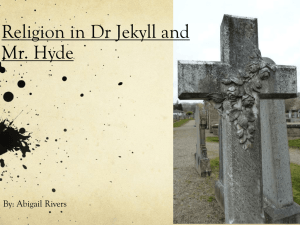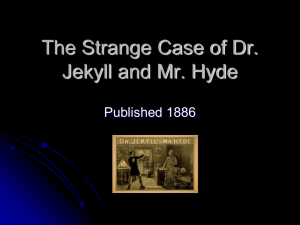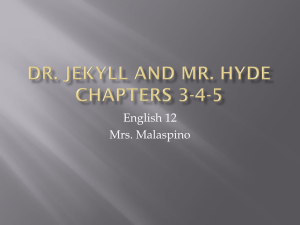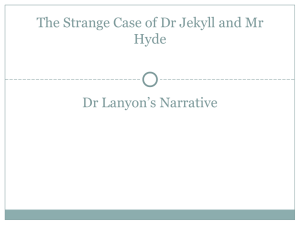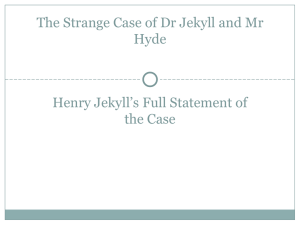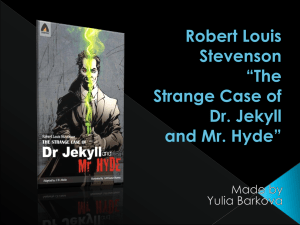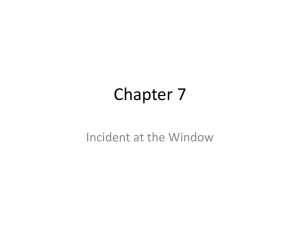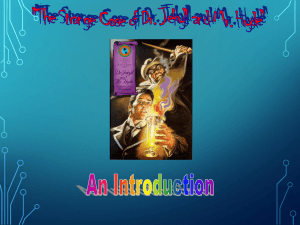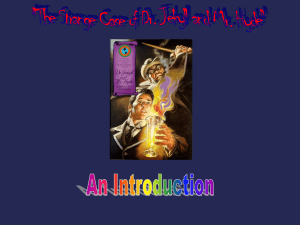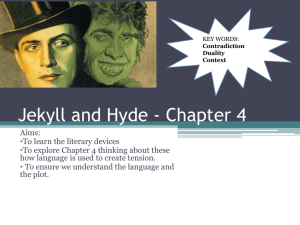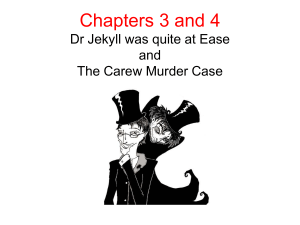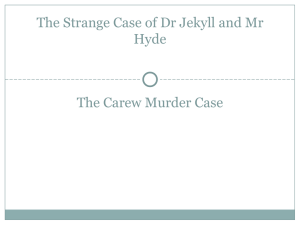chapter-2-3-1
advertisement
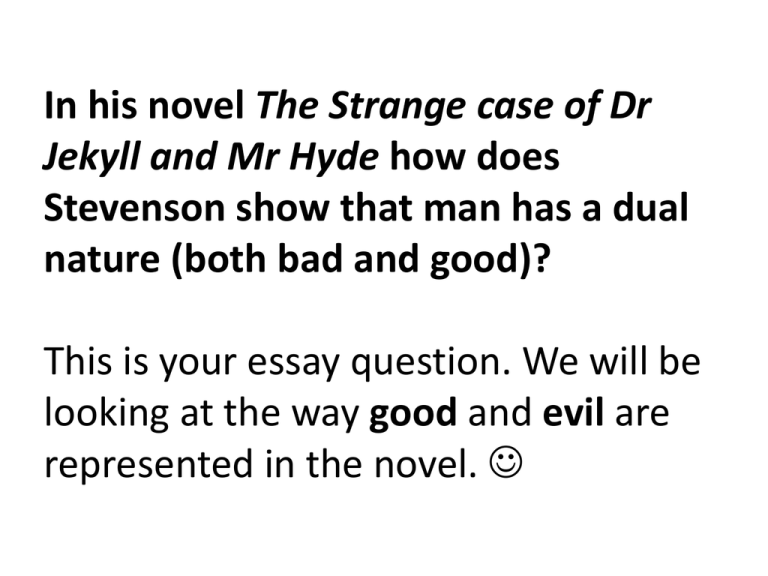
In his novel The Strange case of Dr Jekyll and Mr Hyde how does Stevenson show that man has a dual nature (both bad and good)? This is your essay question. We will be looking at the way good and evil are represented in the novel. Using the description of Mr Hyde, that we are given in Chapter 2 when Mr Utterson meets him, complete the following tasks • List the words or phrases that Mr Utterson uses to describe Hyde. • Draw a picture of Hyde and label him with the phrases you found in Chapter 2. • Write down your first impressions as a reader of the character of Mr Hyde. Face: Around his head: Pale Odd light footsteps Gave the impression of deformity without any nameable malformation Small Shrank back A flush of anger Foul soul Extraordinary quickness Mouth: With a hissing intake of breath Disappeared Mr Hyde Dwarfish An air of defiance He answered coolly Snarled Overall impression: Savage laugh Murderous mixture of timidity and boldness A displeasing smile Black secrets Husky, whispering and some Disgust what broken voice Loathing Grunted Fear This is a double exposure picture taken of Richard Mansfield, who played the dual role of Dr Jekyll and Mr Hyde in the stage production in 1887, a year after it was published. Now plot on the graph, whether you think the Search for Mr Hyde was more or less dramatic than The Story of the Door Choose a quotation that you think is important from this chapter. Remember your coursework question is about good and evil. Jekyll and Hyde Questions Chapter 1 & 2 Answer these questions in your exercise books, including at least one quotation in each answer. WRITE PEE PARAGRAPHS not one sentence answers. 1. 2. 3. The locked door is a key symbol in the novel. What could it represent? (think about good and evil – who lives behind the door?) Why does Mr Lanyon disapprove of Dr Jekyll? (Look at the part where Lanyon describes Jekyll’s experiments as “unscientific balderdash”.) Mr Utterson is a complicated man. Use the first three paragraphs of the 1st chapter to find two contradictions in his character. (An example could be that he likes the theatre, but he never goes.) Extension Question: Think back on Stevenson’s contemporaries Darwin and Freud. Can you find anything in the first two chapters that suggests their influence? (Hint: look at the depiction of Hyde and what happens to Utterson after he meets Lanyon). Vocabulary in Chapter 3 Contrived – planned Befallen – happened Unobtrusive – quiet, unremarkable Distasteful- unpleasant Pendant - doubtful Heresies – blasphemy, disrespect Abominable – dreadful Incoherency – unclear Irrepressible - unstoppable
